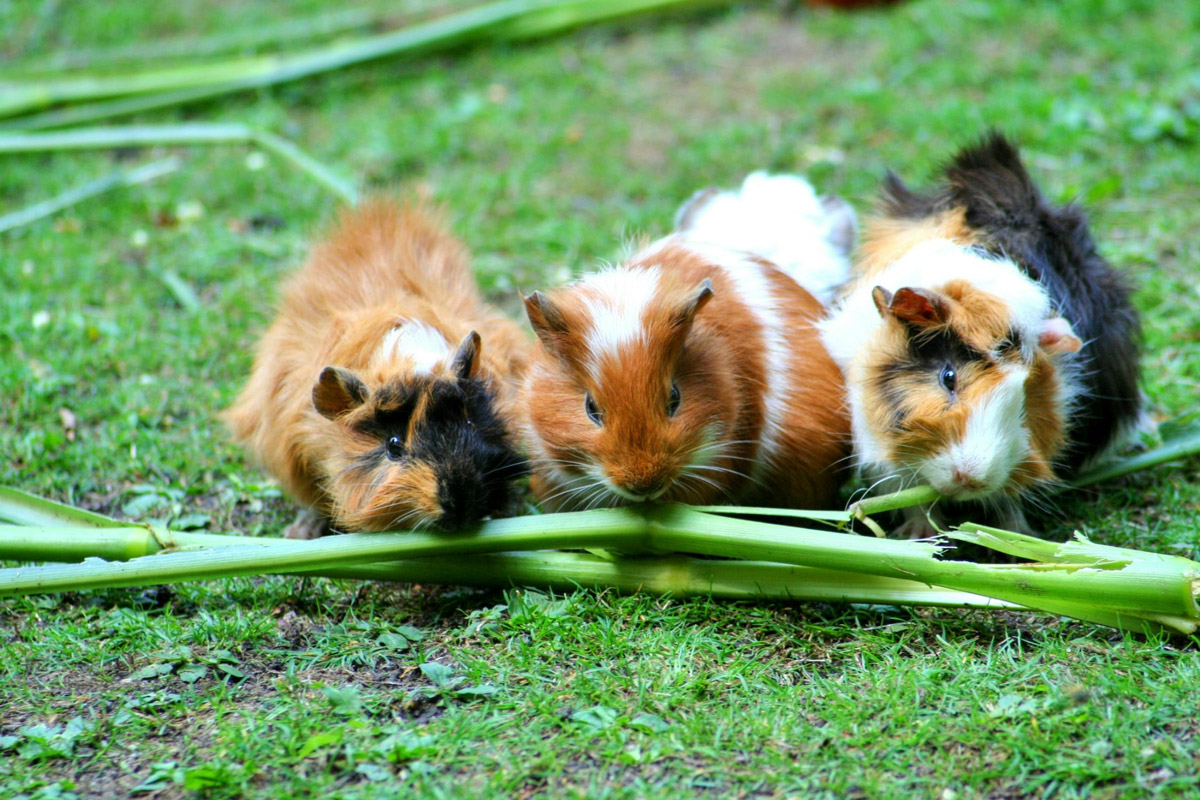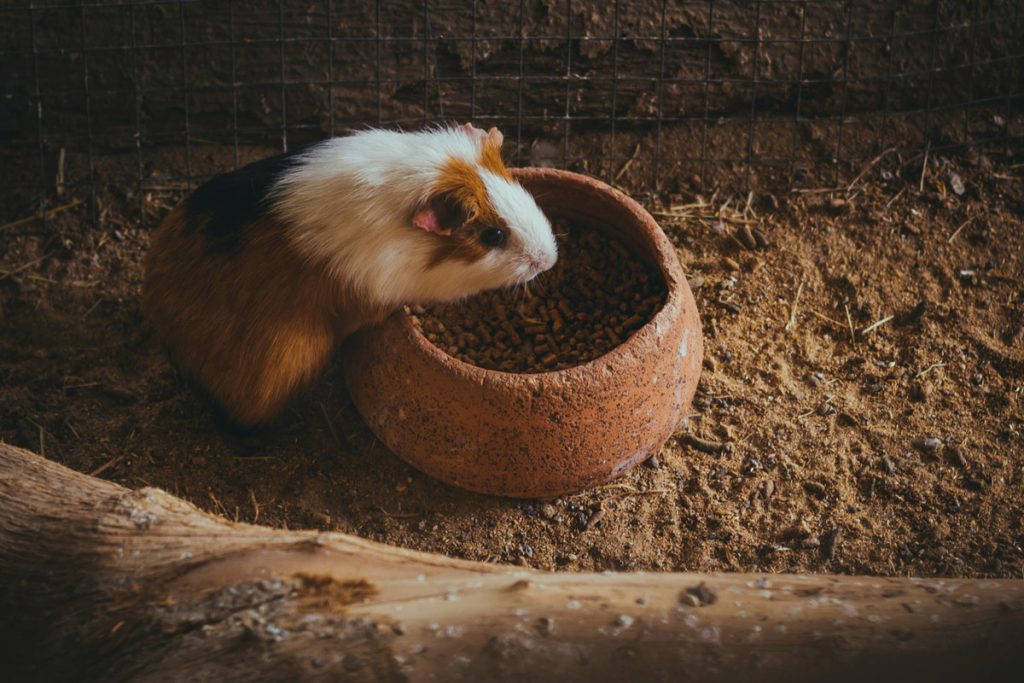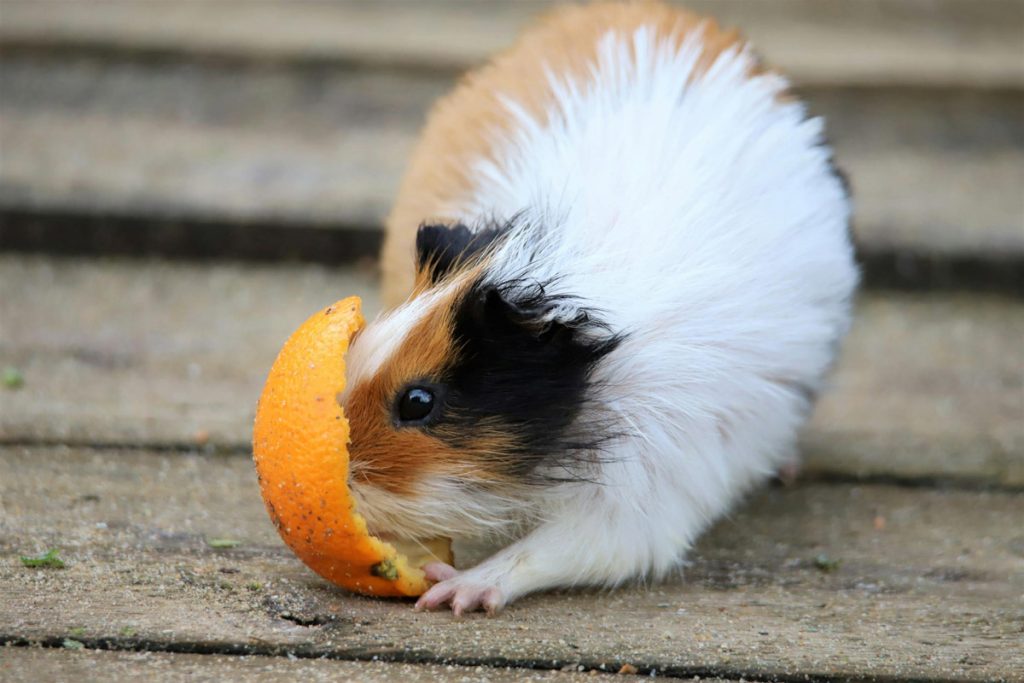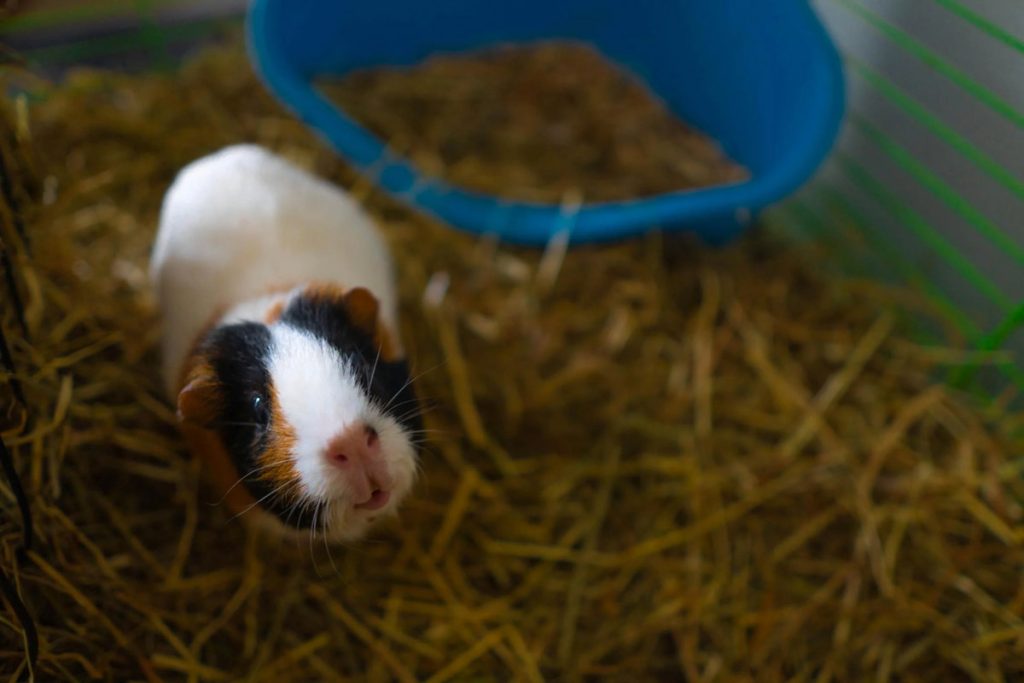A Guide to Feeding Your Guinea Pigs: Harmful Foods to Avoid

Guinea pigs are delightful and sociable pets known for their charming personalities and adorable squeaks. As responsible pet owners, it is important to ensure our pet’s health and well-being, and a crucial aspect of this is providing them with a proper diet.
While guinea pigs have specific dietary requirements, it’s equally important to be aware of foods that can be harmful to them. In this guide, we’ll explore the fundamentals of feeding guinea pigs and highlight harmful foods to avoid to keep your furry friends healthy and happy.
Understanding Guinea Pig Nutrition

Before delving into the list of harmful foods, it’s essential to understand the nutritional needs of guinea pigs. These small rodents are herbivores, meaning their diet should consist mainly of hay, fresh vegetables, and pellets formulated specifically for guinea pigs.
- Hay: Hay is the cornerstone of a guinea pig’s diet. It provides the essential fibre for maintaining healthy digestion and wearing down their continuously growing teeth.
- Fresh Vegetables: Fresh vegetables are rich in essential vitamins and minerals that contribute to overall health. Leafy greens such as romaine lettuce and parsley are excellent choices. Bell peppers, carrots, cucumbers, and zucchini are also well-received by most guinea pigs.
- Pellets: High-quality guinea pig pellets should be formulated specifically for their nutritional needs. Look for pellets that contain vitamin C, which guinea pigs cannot produce on their own but require in their diet to prevent scurvy.
- Fresh Water: Access to clean, fresh water is vital for guinea pigs to stay hydrated and maintain optimal health. Ensure that your guinea pigs have a constant supply of water in a sipper bottle or a heavy, shallow dish to prevent tipping.
Harmful Foods to Avoid

While guinea pigs have broad dietary preferences, several foods can be harmful to their health and should be strictly avoided:
- High-Calcium Foods: Foods high in calcium, such as dairy products and certain vegetables like spinach and kale, can contribute to the formation of bladder stones in guinea pigs. While these vegetables are safe in moderation, excessive consumption can pose a risk.
- Sugary Treats: Guinea pigs have sensitive digestive systems and are prone to gastrointestinal issues if fed sugary treats such as candy, chocolate, or sugary fruits like grapes and bananas. These foods can lead to health issues such as obesity, dental problems, and digestive upset.
- Fatty Foods: Foods high in fat, such as nuts, seeds, and avocado, should be avoided as they can lead to obesity and other health issues in guinea pigs. Additionally, avocado contains a substance called persin, which is toxic to guinea pigs and can be fatal if ingested.
- Citrus Fruits: While guinea pigs require vitamin C in their diet, citrus fruits like lemons, limes, and grapefruits are too acidic and can cause mouth sores and digestive upset in guinea pigs. Opt for safer sources of vitamin C, such as bell peppers and leafy greens.
- Onions and Garlic: Onions and garlic contain compounds that can cause damage to a guinea pig’s red blood cells, leading to anaemia or the malformation of blood cells.
- Processed Foods: Processed foods such as chips, crackers, and sugary cereals are harmful to guinea pigs as they cannot be easily digested. Stick to feeding them fresh, whole foods to ensure they receive the essential nutrients they need.
- Raw Beans: Raw beans contain toxins that can be harmful to guinea pigs if consumed in large quantities. Always ensure that beans are thoroughly cooked, and never feed them raw to your pets.
Keep Your Guinea Pigs Safe and Healthy

Feeding your guinea pigs a balanced and nutritious diet is essential for their health and well-being. By providing a diet consisting primarily of hay, fresh vegetables, and high-quality pellets, you can ensure that your furry companions receive the necessary nutrients to thrive. Additionally, being aware of harmful foods to avoid will help prevent potential health issues and ensure a long and happy life for your beloved guinea pigs. Remember, when in doubt, consult with a veterinarian specializing in small animals for personalized dietary recommendations for your guinea pigs. With proper care and attention to their dietary needs, your guinea pigs will continue to bring joy and companionship to your life for years to come.
For more tips and information about pet care, browse Clubpet’s website. You can also join us at our cat festival and pet expo in Singapore for a day of fun.







